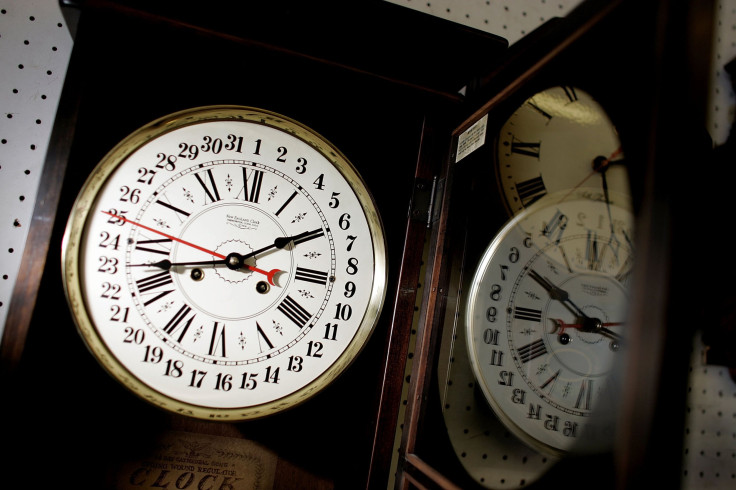Guide To Fighting Negative Effects Of Daylight Saving Time On Health
KEY POINTS
- Daylight saving time is not in sync with human's circadian rhythm
- Change from daylight saving to standard time is less harmful than spring switch
- Every year, several car accidents and deaths can be attributed to the switch
As people made the 'fall back' Sunday, Daylight saving time ended in the US.
With people across the country turning back the clocks for one hour at 2 a.m on Nov. 7, there will be more light in the morning and the sun will last longer in the evening. These changes in light and dark exposure can have negative effects on people's health.
"Changes, even small ones, in your sleep can impact almost every area of your body from your skin to your cardiovascular system," Dr. Marri Horvat of the Cleveland Sleep Disorders Clinic told ABCNews.
Here's a guide to beat the concomitant effects on health that come with the change.
Daylight Saving Time (DST) is not in sync with our circadian rhythm. Our bodies are more accustomed to light in the mornings and darkness in the evenings, due to the circadian rhythm. It is a process that signals when it's time to wake up and sleep.
Reportedly, the change from daylight saving to standard time is less harmful than the spring switch because people gained an hour of sleep. However, either switch can negatively impact overall health.
Every year, several car accidents and deaths can be attributed to changes in daylight saving time, according to some estimates.
While the fall switch has been linked with an 11% increase in depressive episodes, the spring switch is associated with a 24% increase in heart attacks the next day.
On the other hand, the fall switch has resulted in a 21% decrease in heart attacks. The reason behind this might be the advantage of an extra hour of sleep gained during the fall switch.
Following the switch, Dr. Horvat suggested establishing a nighttime routine by "going to bed and waking up 10 to 15 minutes later each day."
Ideally, a "winding down" period of at least an hour before bedtime should follow this routine. It is the period when one avoids screen time, reduces the thermostat (between 60-75 degrees), and performs a relaxing activity like listening to soothing music.
Doctors also recommend avoiding caffeine and alcohol in the evenings as well as snacks close to bedtime.
Exercising outdoors is also a great way to combat changes in sleep. Getting natural sunlight during the day can help with the switch.
The concept of daylight saving was first proposed in 1895 in New Zealand but was first practiced by Germany during World War I to save electricity. The US later signed DST into law in 1918 to save energy during the war.
However, it was repealed in 1919 at the end of the war when it did not find many takers, reported CNET.
Since then, the US has had a fickle relationship with DST. Since 2007, most of the country has been observing daylight saving time from the second Sunday in March to the first Sunday in November. However, if any state doesn't want to participate, it is allowed to pass a law through its legislature.
Most of the world (except for countries around the Equator) has implemented DST at one point in time. Japan, India, and China are the only major industrialized countries that do not utilize daylight saving in any form.
Some countries are consistent in observing DST while others have differences within their own boundaries.
The United Kingdom observes DST, or summertime, starting on the last Sunday in March and ending on the last Sunday in October.
Australia, on the other hand, is divided in observing DST. It is used in the Australian Capital Territory, New South Wales, South Australia, Tasmania, and Victoria from the first Sunday of October till the first Sunday of April. However, Western Australia, Queensland, and the Northern Territory don't use DST.
The information in this article is for educational and informational purposes only and is not intended as health or medical advice.

© Copyright IBTimes 2025. All rights reserved.





















